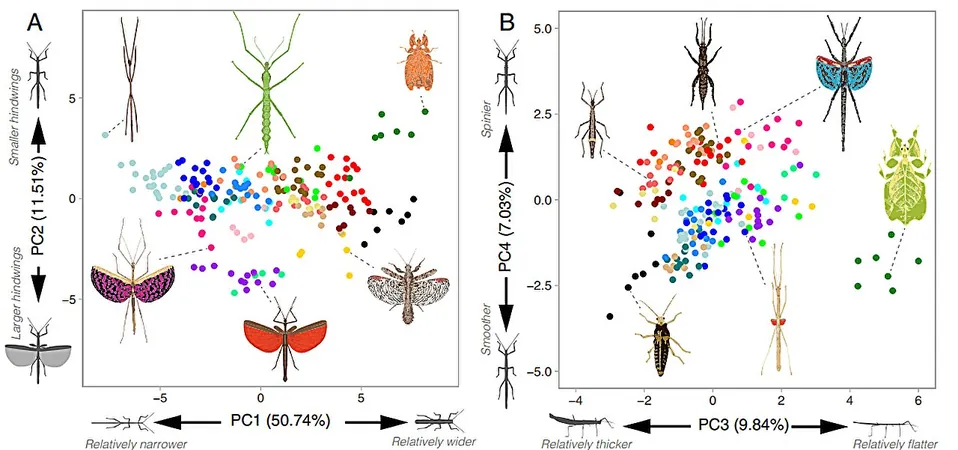
Rising Respiratory Illness Activity Sparks Alarm: New Findings on Pneumonia Treatment and Vaccine Perceptions
2024-12-27
Author: Sarah
Rising Respiratory Illness Activity Sparks Alarm: New Findings on Pneumonia Treatment and Vaccine Perceptions
Recent research has raised concerns about the effectiveness of adding macrolides to standard treatments for patients hospitalized with moderate to severe community-acquired pneumonia (CAP). According to a population-level study published in the Journal of Infectious Diseases, the addition of these antibiotics appears to make little difference in clinical outcomes for such patients.
Researchers from the University of Oxford analyzed electronic medical records of 8,872 adults hospitalized with CAP in Oxfordshire, England, from January 2016 to March 2024. They specifically investigated the effects of adjunctive macrolides, such as azithromycin, when used alongside the standard treatments of amoxicillin or co-amoxiclav. Despite recommendations from the British Thoracic Society and the National Institute for Health and Care Excellence supporting macrolide use for broader coverage against atypical pathogens, the study found no significant improvements in 30-day all-cause mortality, discharge times, or overall patient health as assessed by the Sequential Organ Failure Assessment (SOFA) score.
Among the patients analyzed, 606 patients on amoxicillin and 1,821 on co-amoxiclav added macrolides to their treatment. The results indicated that the use of macrolides did not correlate with reduced mortality rates or significantly faster recoveries, suggesting that the potential benefits need to be carefully balanced against the risks of antibiotic resistance and other side effects.
In an interesting twist, public sentiment around respiratory syncytial virus (RSV) vaccines is showing a notable uptick. A recent poll from the Annenberg Public Policy Center at the University of Pennsylvania revealed that confidence in the efficacy of RSV vaccines—particularly for protecting infants when administered to pregnant individuals—has jumped 10 percentage points since October 2023, now standing at 52%. Similarly, perceptions regarding the effectiveness of RSV vaccines for older adults rose from 54% to 61%.
This growing confidence in vaccines, however, contrasts sharply with opinions on the COVID-19 vaccine, where only 65% of respondents in the November poll expressed confidence in its safety. The situation comes against the backdrop of the recent Republican presidential primaries, particularly amidst Donald Trump's nomination of vaccine skeptic Robert F. Kennedy Jr. to a pivotal health position.
The survey also highlighted an increase in confidence for other vaccines. For instance, 86% of respondents deemed the measles, mumps, and rubella vaccine safe, while a stable 83% reported the same for the annual flu shot. Most respondents would recommend the childhood vaccines for MMR, polio, and Tdap, signaling a generally positive attitude toward routine immunizations, despite lingering doubts surrounding COVID-19 vaccines.
Adding to public health concerns are new detections of chronic wasting disease (CWD). Wyoming officials confirmed the disease in a dead cow elk, marking a continuation of CWD's spread across the state since its first identification in 1985. Similarly, Alabama reported its ninth CWD case in a harvested white-tailed deer, meriting an expansion of the state's management zones for the disease.
With the emergence of respiratory illnesses and ongoing challenges in vaccine perception, health experts urge the public to stay informed and proactive about preventative measures to combat these growing public health issues.




 Brasil (PT)
Brasil (PT)
 Canada (EN)
Canada (EN)
 Chile (ES)
Chile (ES)
 España (ES)
España (ES)
 France (FR)
France (FR)
 Hong Kong (EN)
Hong Kong (EN)
 Italia (IT)
Italia (IT)
 日本 (JA)
日本 (JA)
 Magyarország (HU)
Magyarország (HU)
 Norge (NO)
Norge (NO)
 Polska (PL)
Polska (PL)
 Schweiz (DE)
Schweiz (DE)
 Singapore (EN)
Singapore (EN)
 Sverige (SV)
Sverige (SV)
 Suomi (FI)
Suomi (FI)
 Türkiye (TR)
Türkiye (TR)